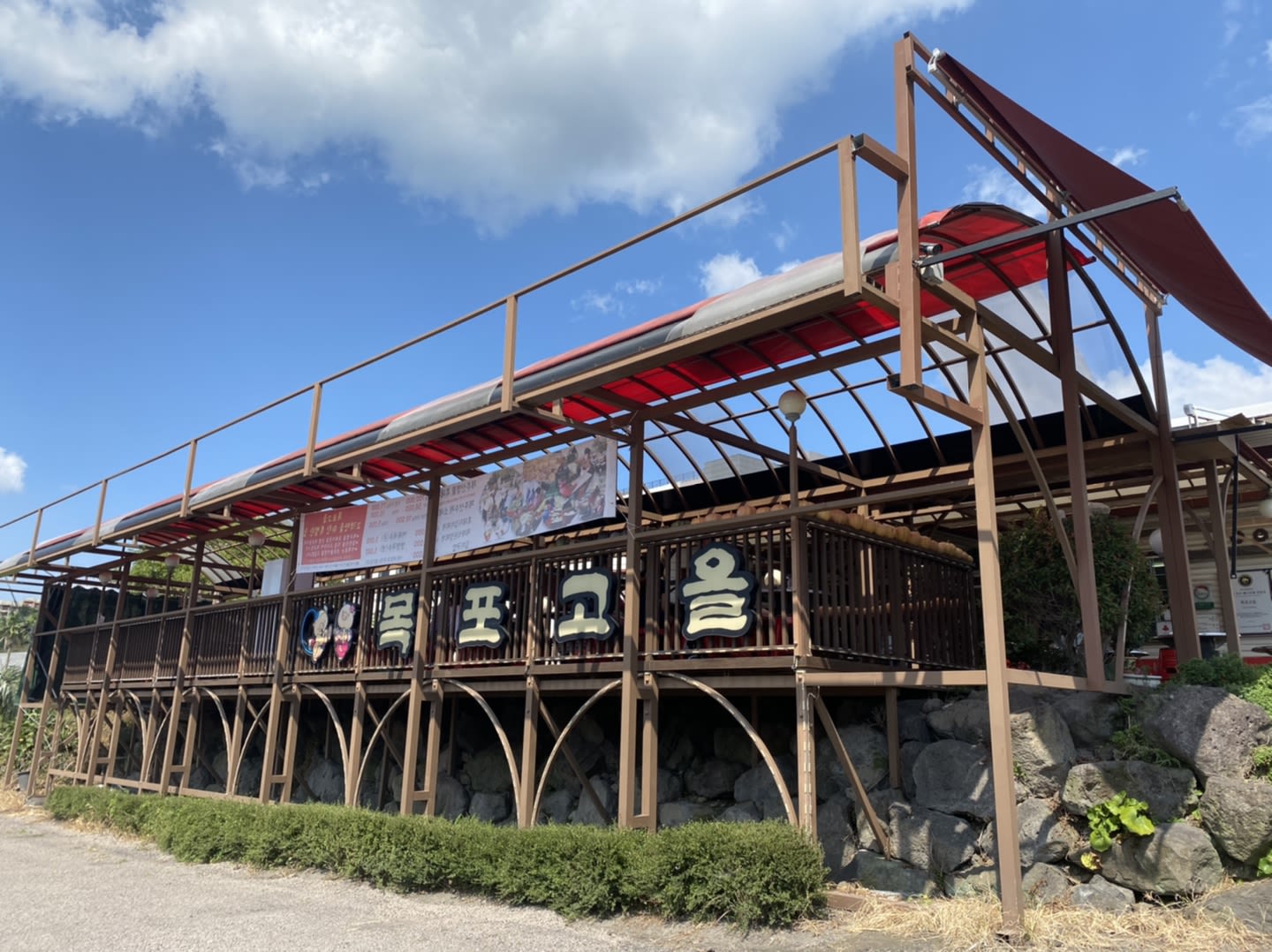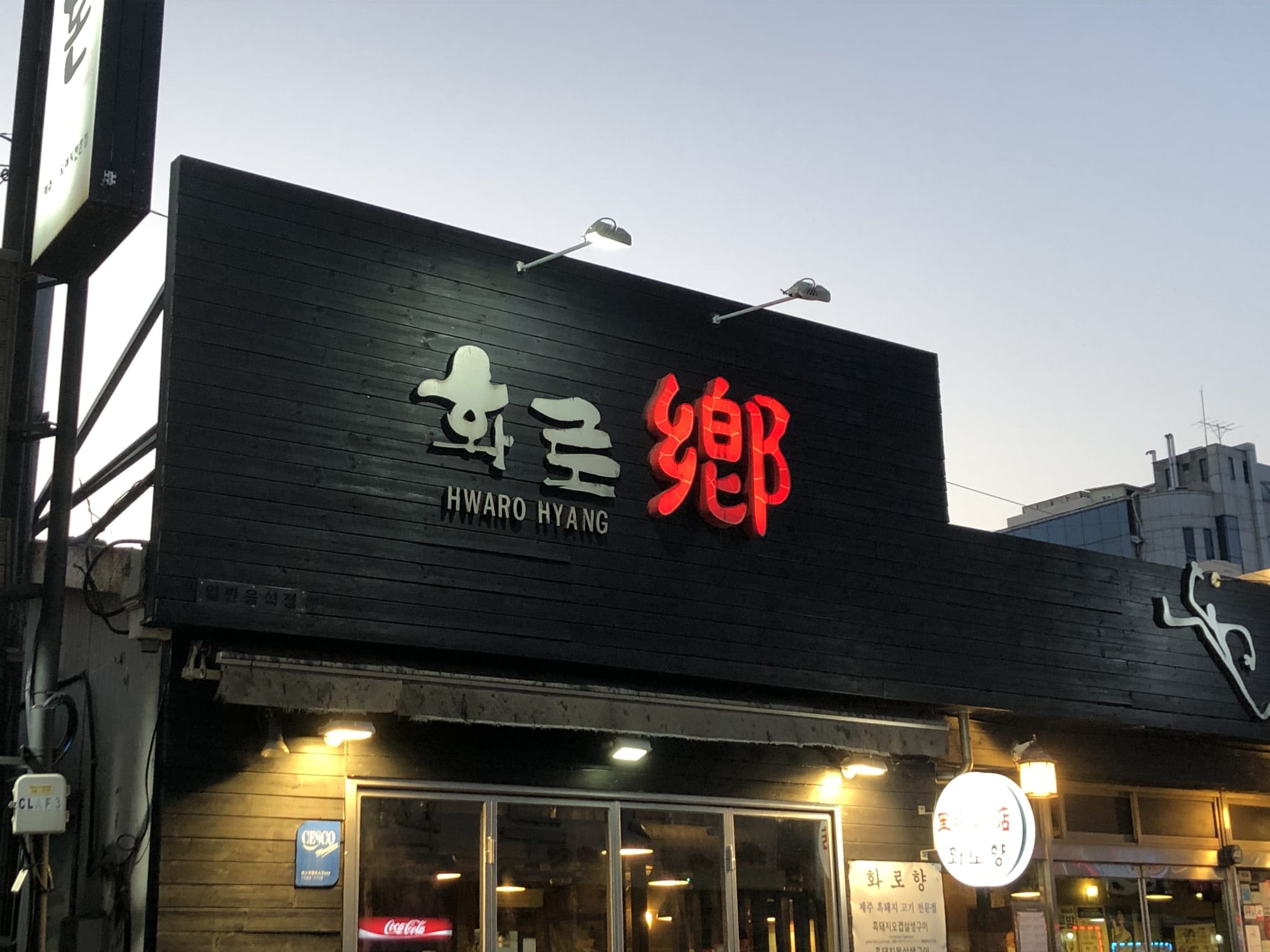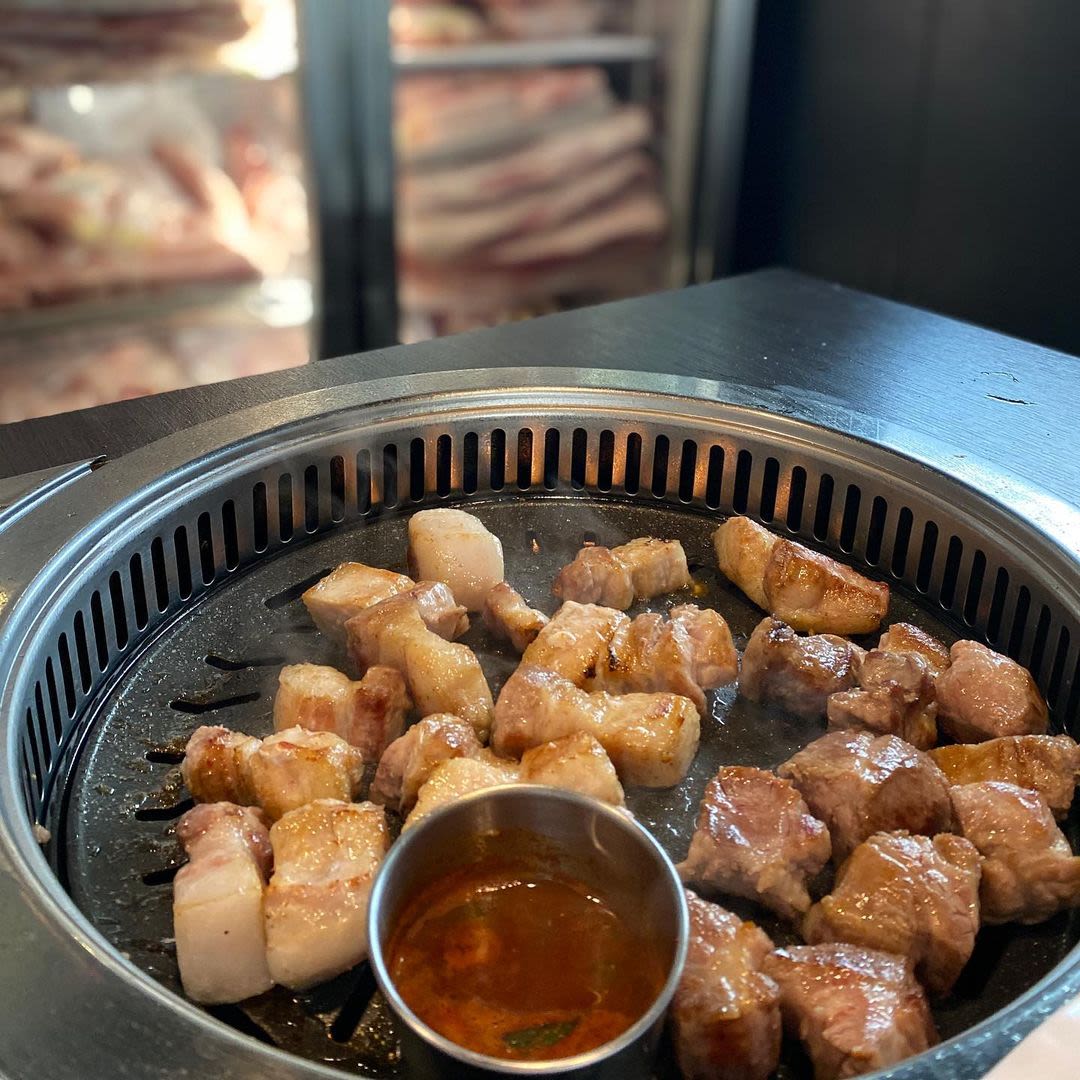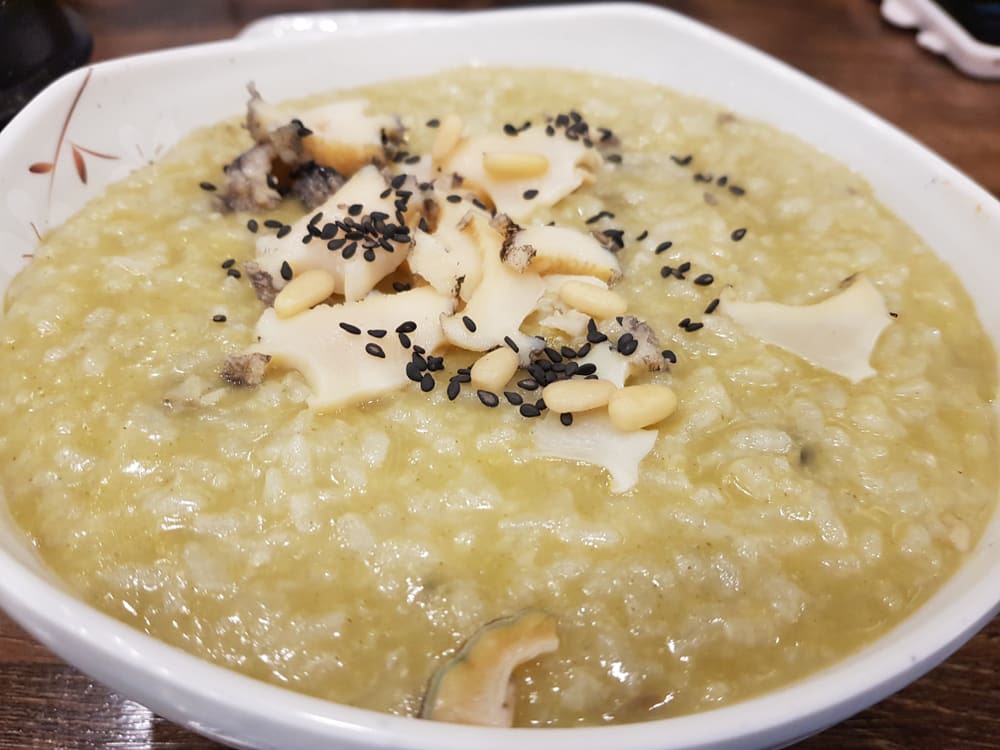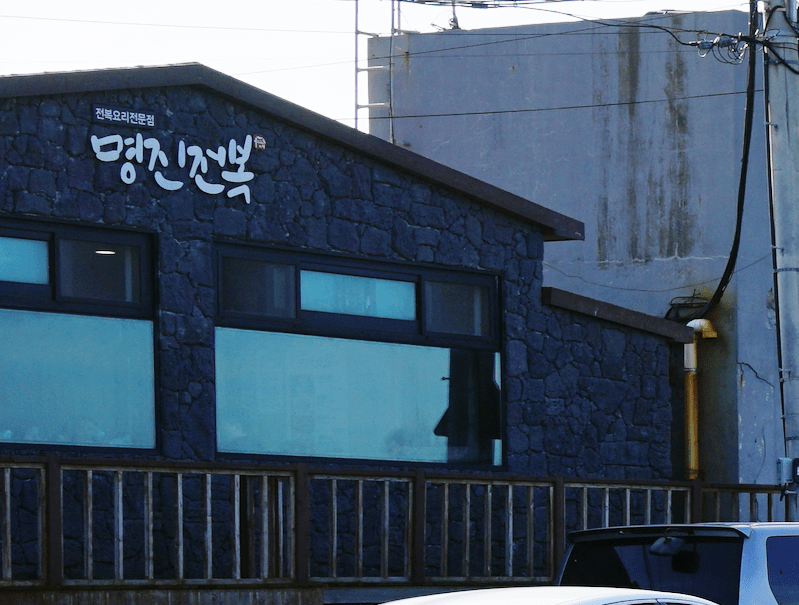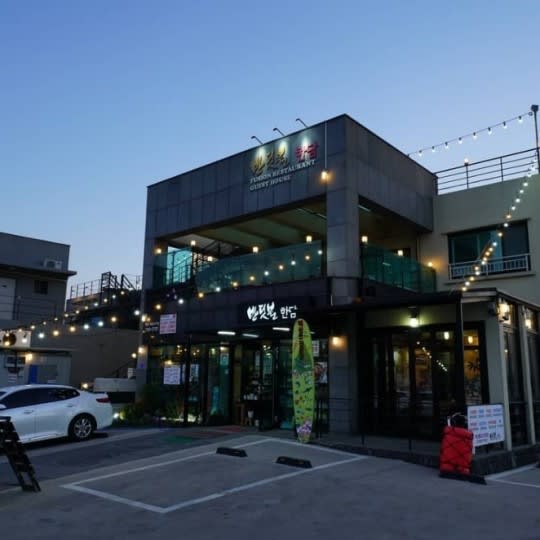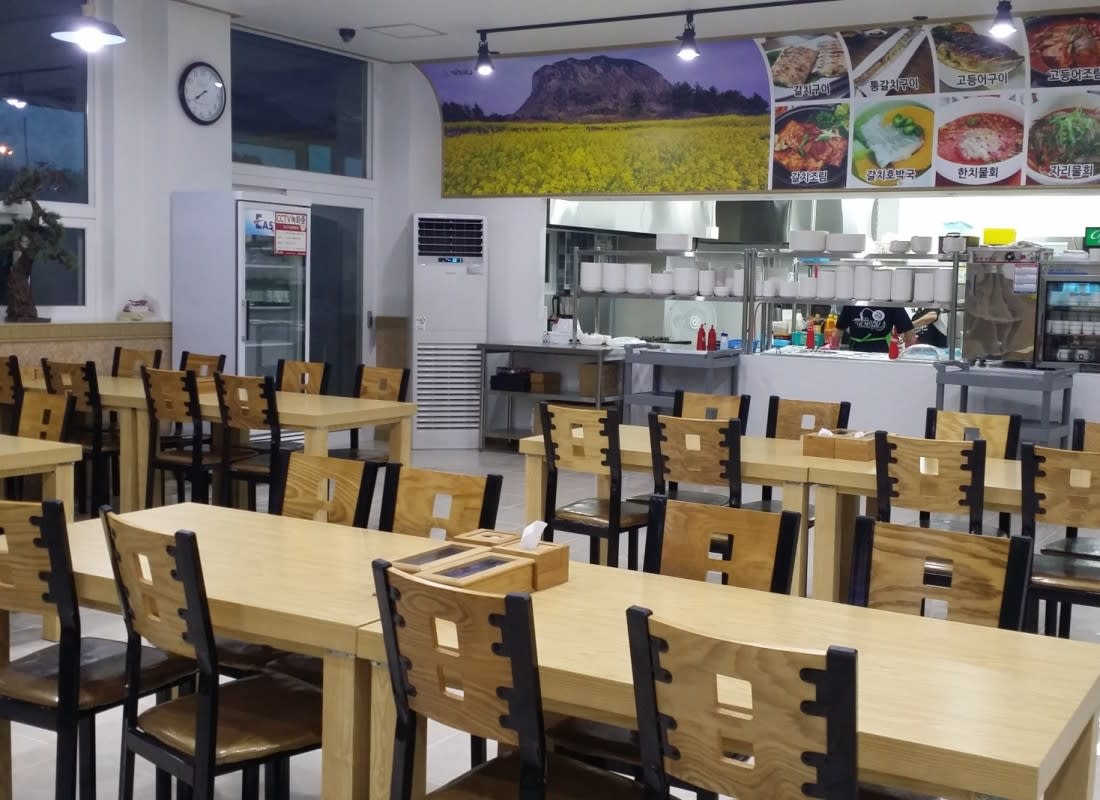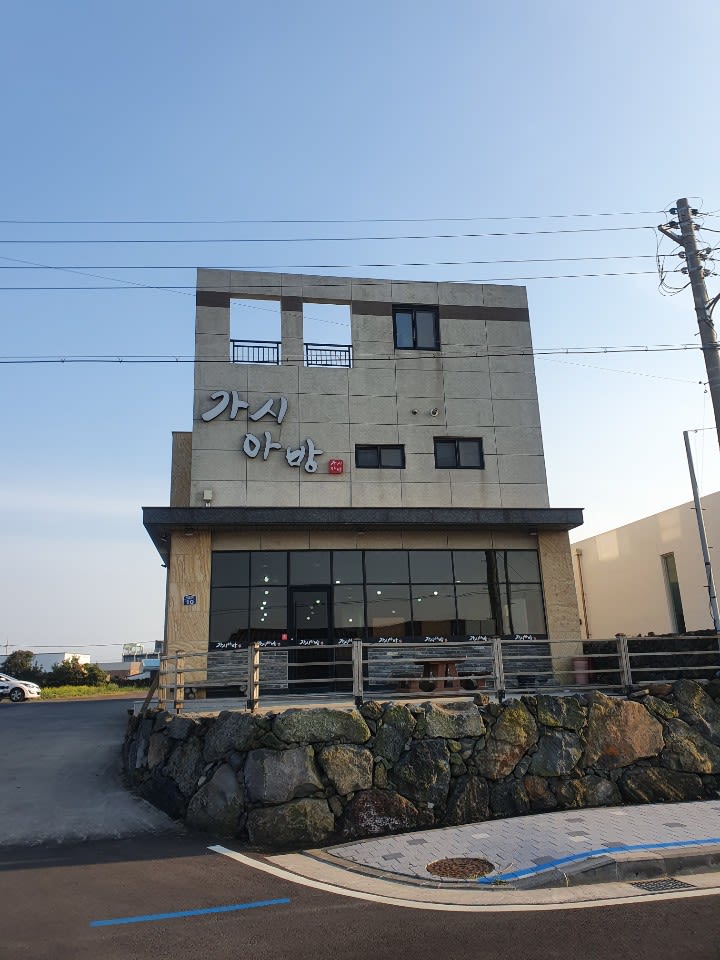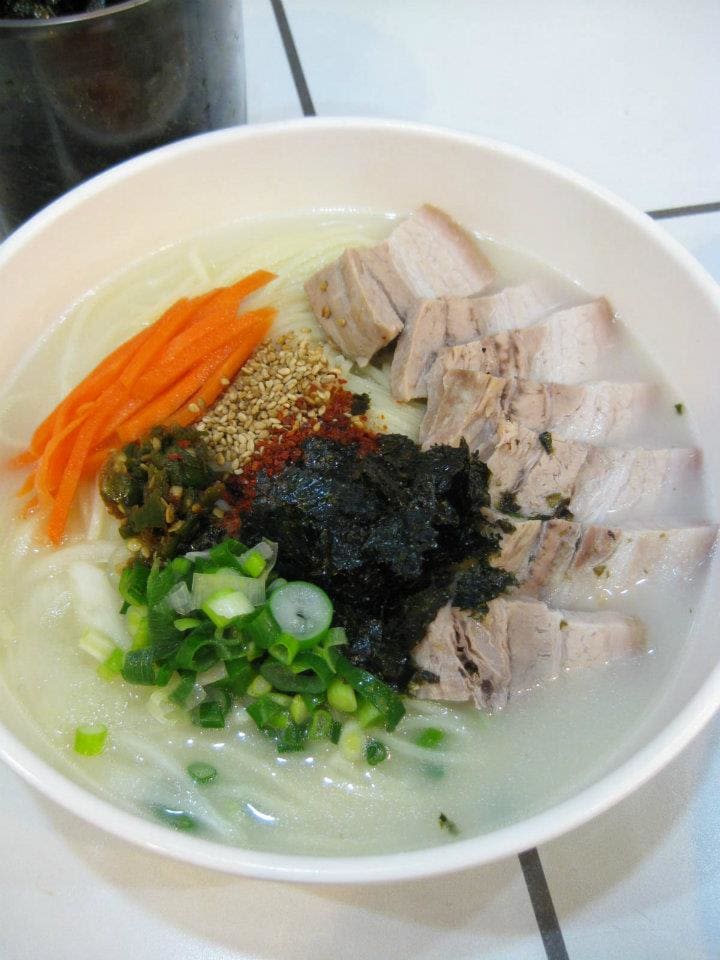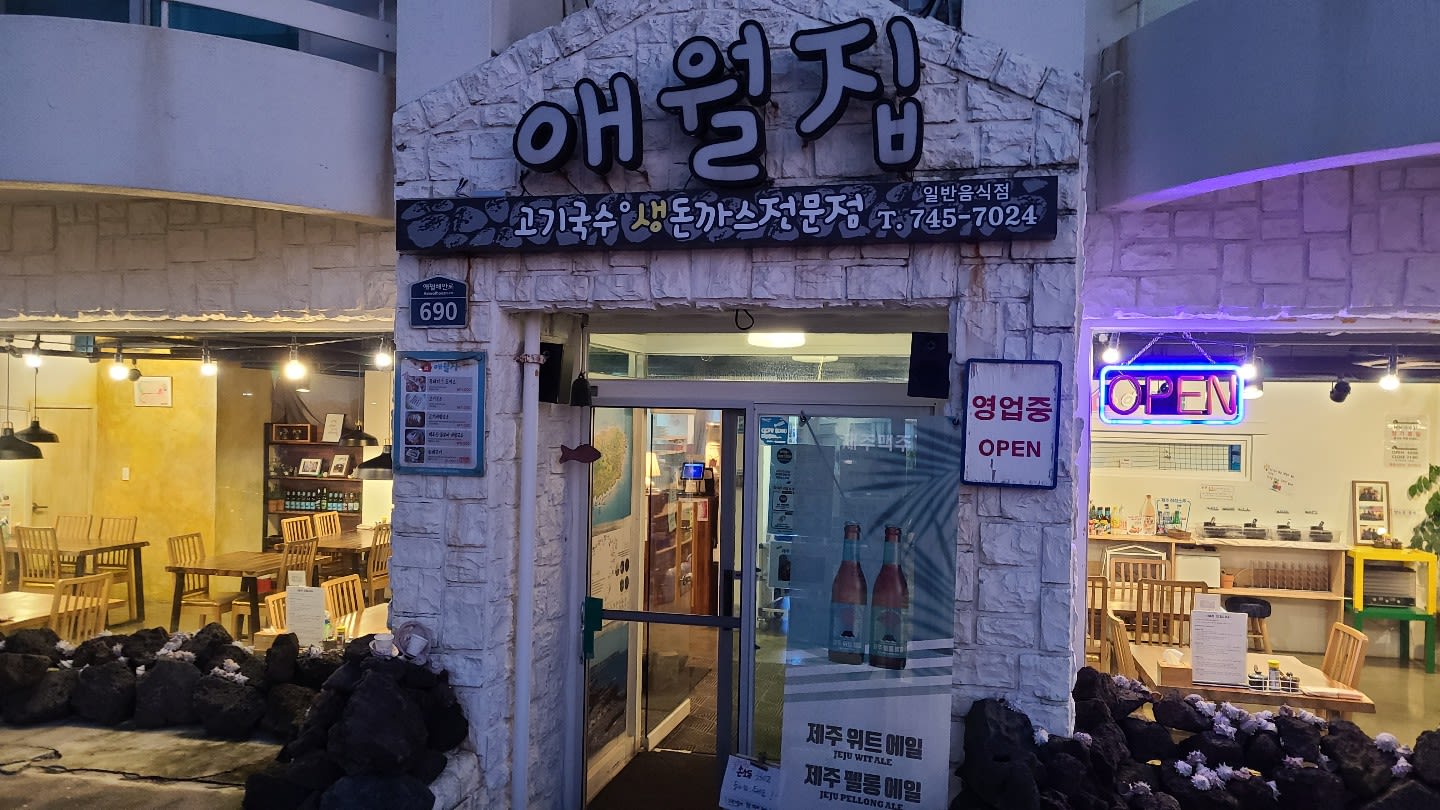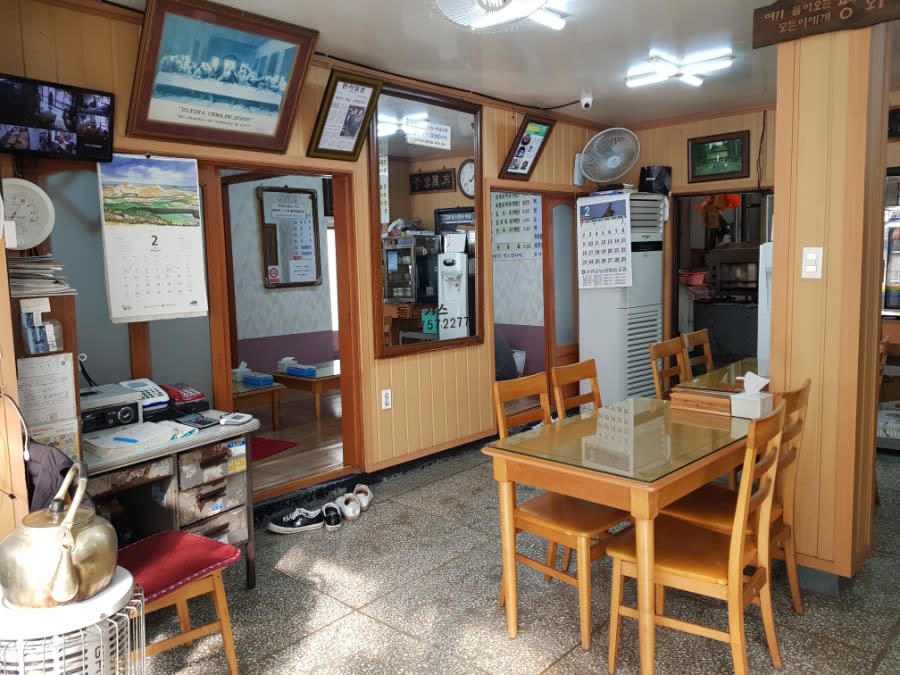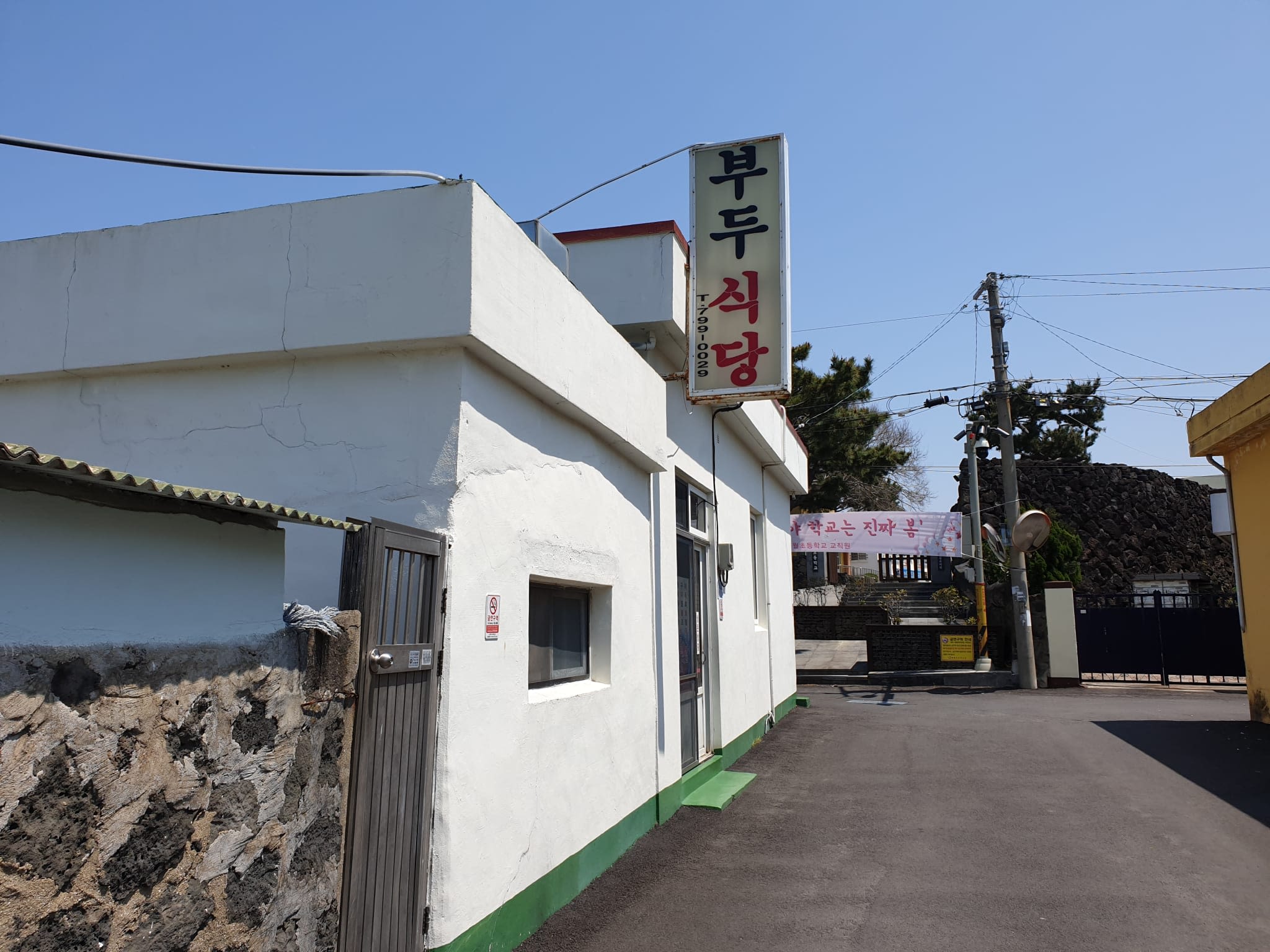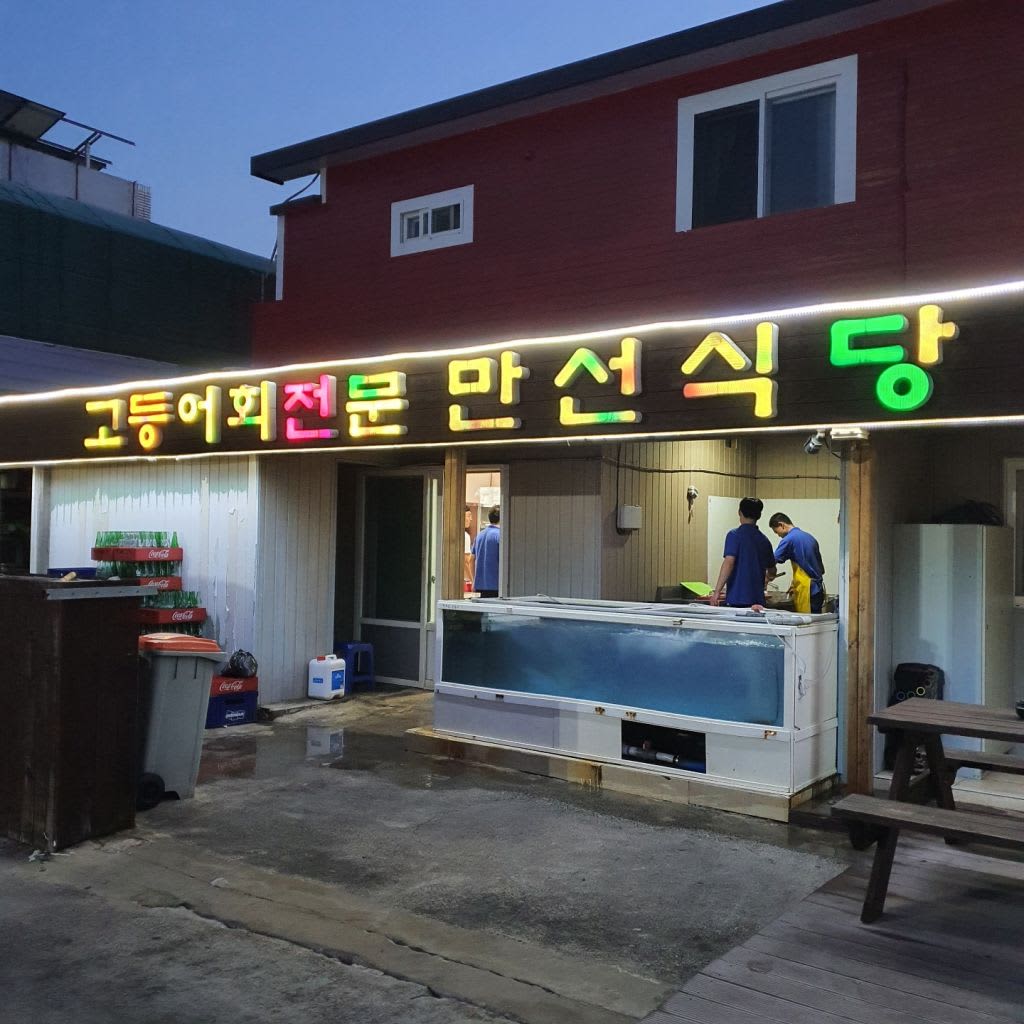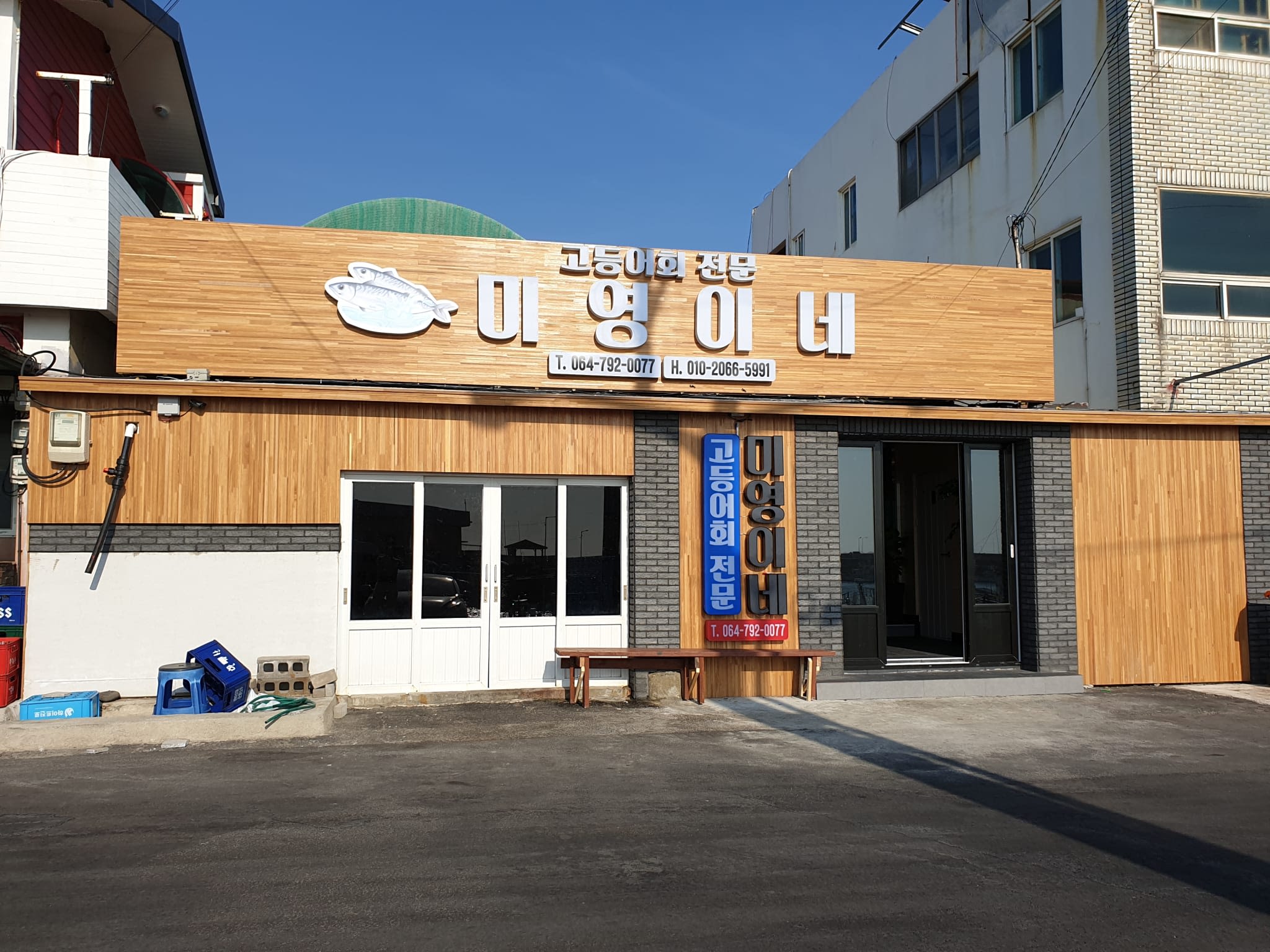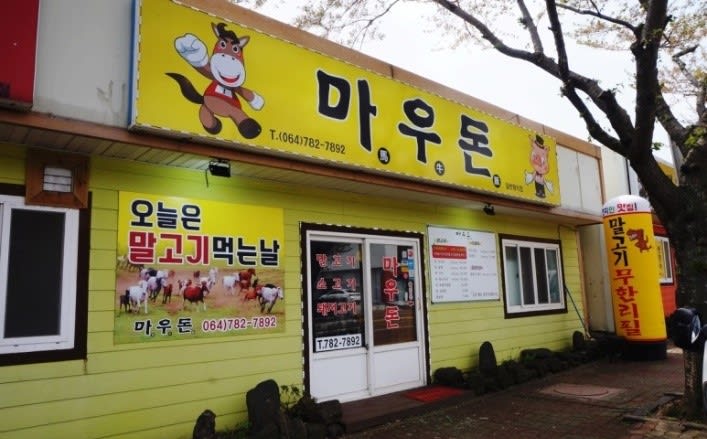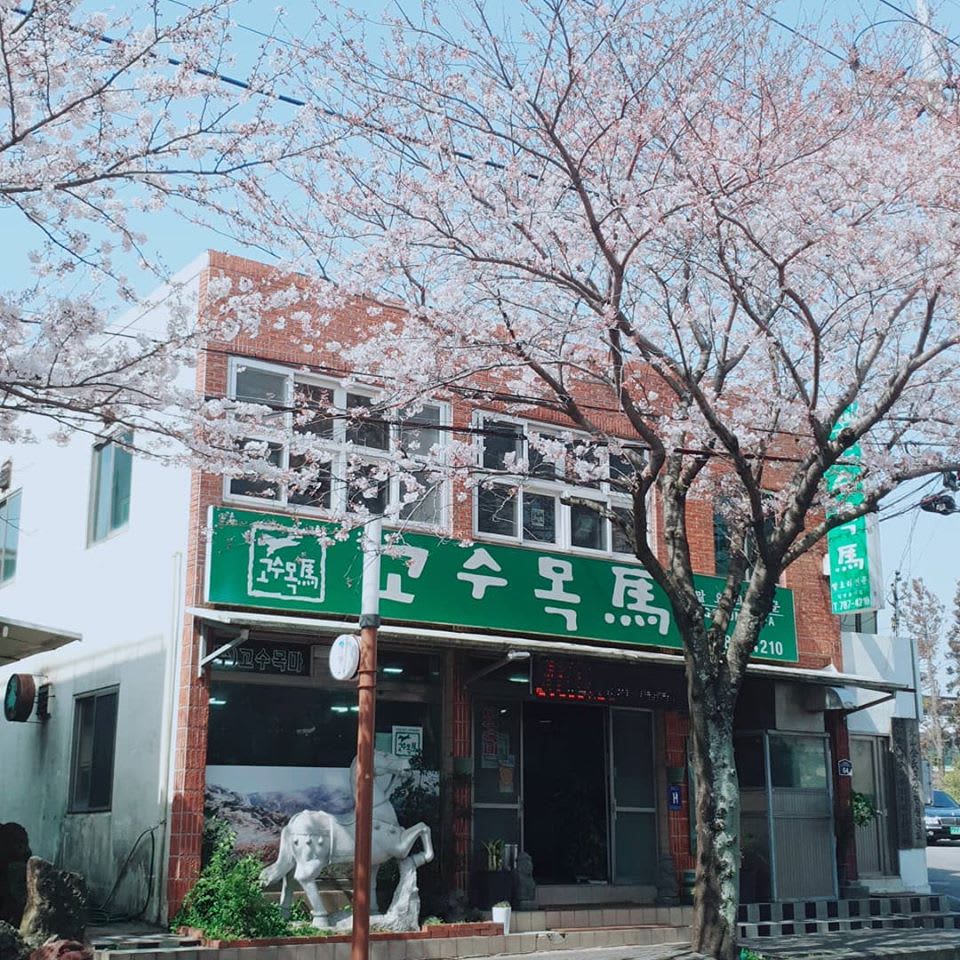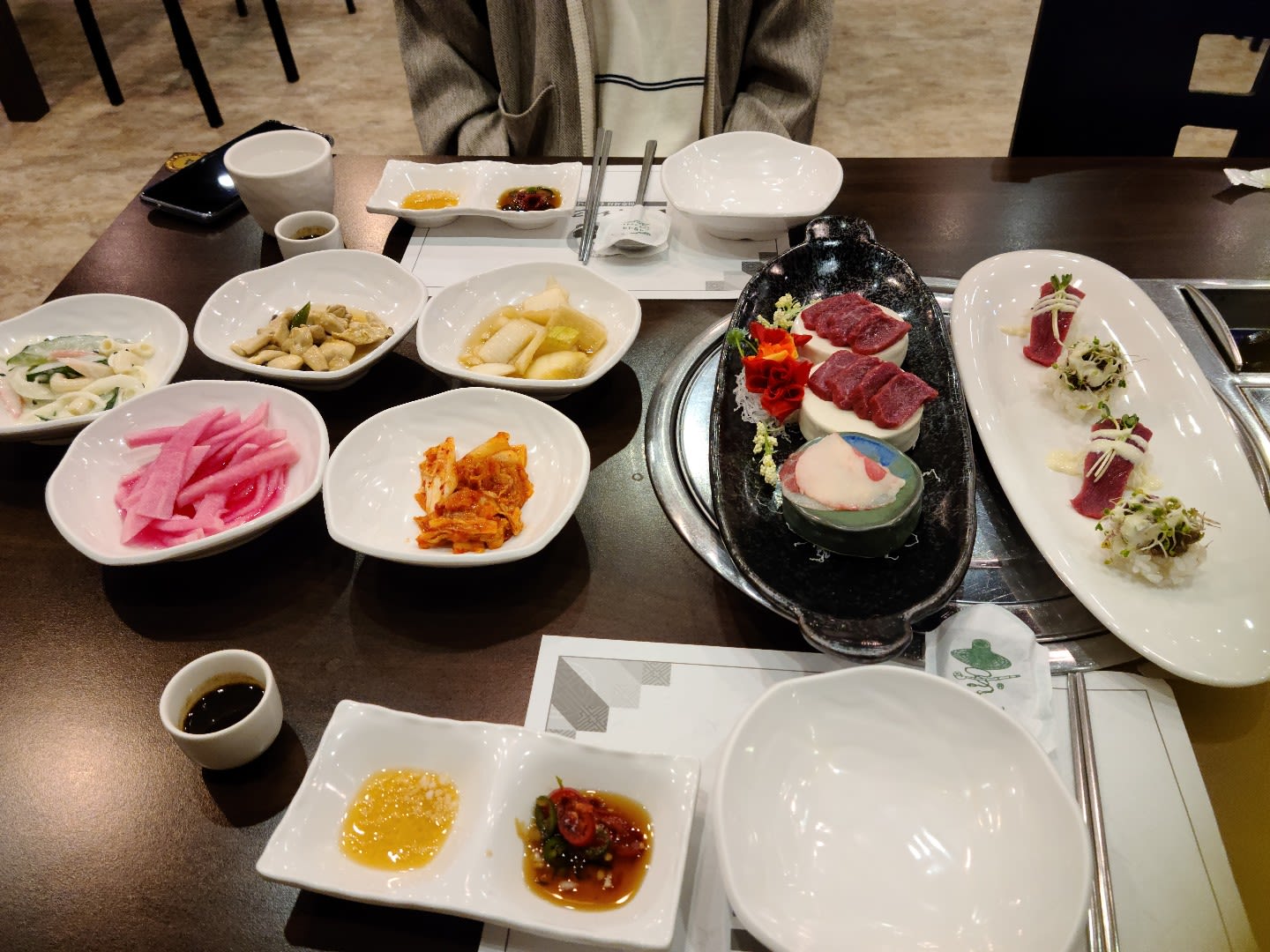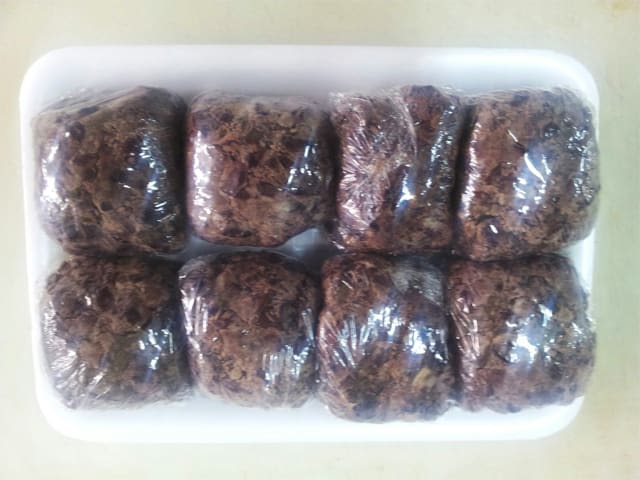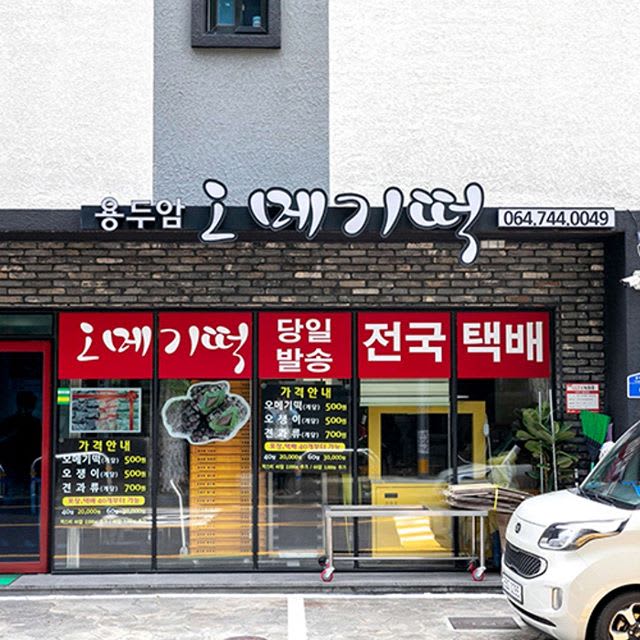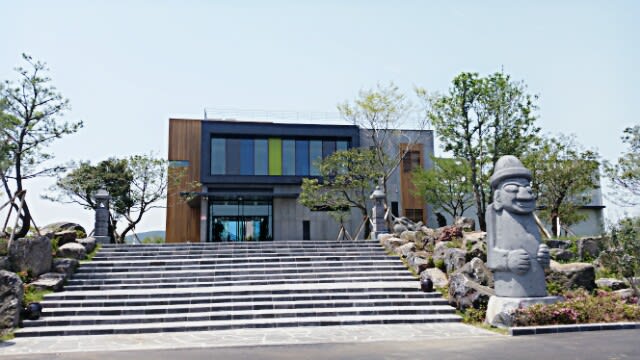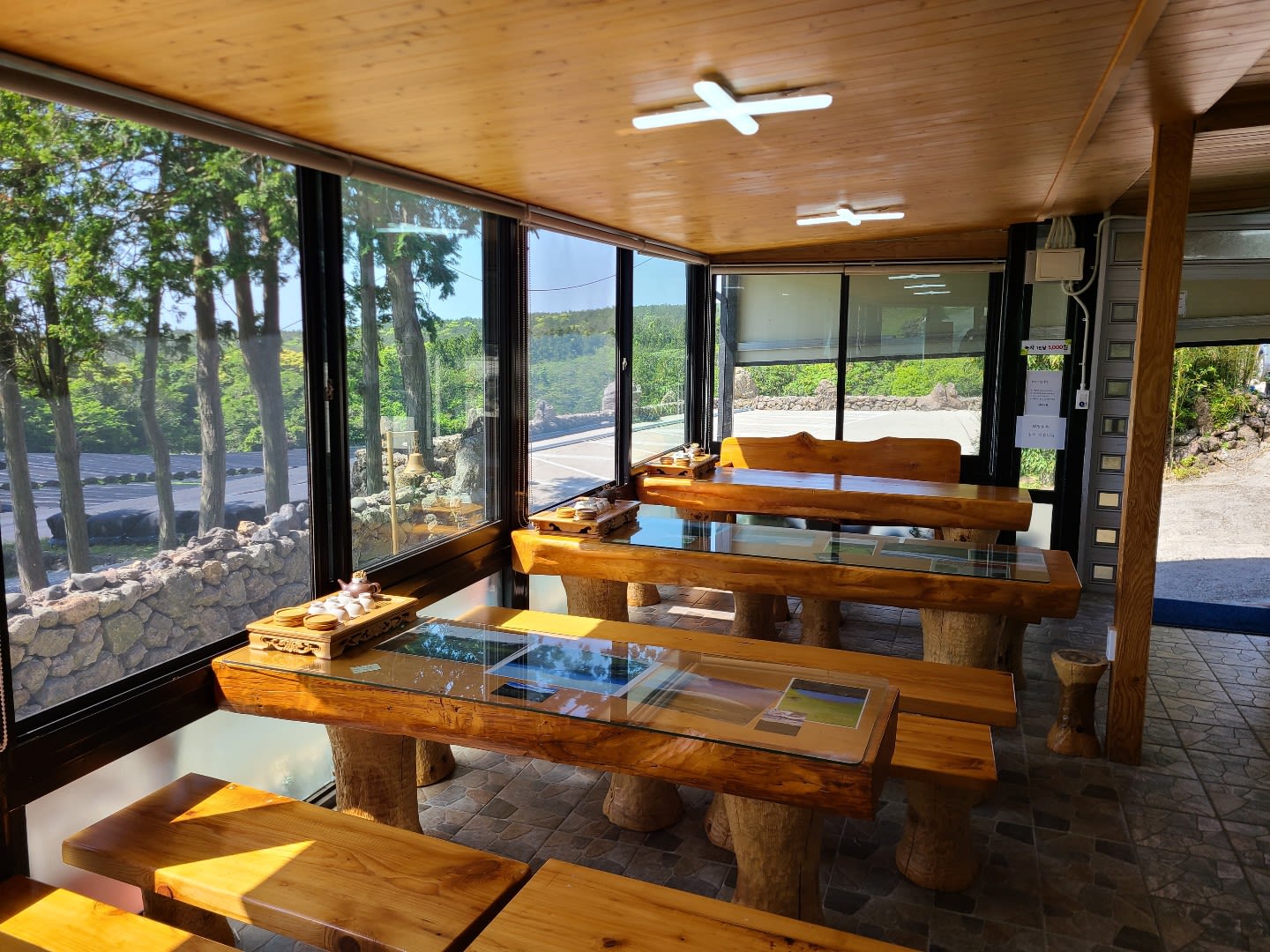Unlike Korea, which is a peninsula, Jeju is a large island, so its natural environment has long been distinct from that of the mainland. Because of the unique natural environment, many foods can only be found in Jeju. From Jeju black pork to Jeju cutlassfish and Jeju local cuisine. We present the typical dishes of Jeju and make restaurant recommendations based on cuisine.
Chewy fat and solid meat quality
Black pork
Healthy Jeju black pigs raised in Jeju are normally fewer than regular pigs because they are smaller and have a longer breeding period. It is widely considered to be nutritionally superior and has long been used in special occasions such as feasts or banquets because of its high protein content and low cholesterol. Its excellent ratio of chewy fat to solid meat makes it popular even with its high price tag. It can be steamed or stir-fried with seasoning, just like regular pork, among other methods of preparation. However, the grilled black pork, which is cooked over charcoal and then drained, is the best way to restore its original flavor.
· Let's eat the black pork after it has been dipped in salted anchovies (Meljeot). This is the traditional Jeju method, and the lightness of the black pork is complemented by the sea scent of the salted anchovies. · Let's enjoy the grilled black pork with a Jeju Soju called Hallasan. The greasy taste of pork is immediately relieved by cold Hallasan Soju.
Enjoying it as a natural one
Abalone
Abalone, also known as the luxury of the sea and the wild ginseng of the sea, is considered to be Jeju's treasure. It has a superb texture and grows up against strong sea currents. In Jeju, you can taste natural abalone collected by Haenyeo (female divers) themselves, not farmed abalone. Let's indulge in a variety of Jeju abalone dishes, including sashimi, grilled fish, and steamed fish. However, it is recommended to be cooked and eaten during the spawning season from September to November because the intestines are toxic.
In Jeju, "Obunjagi," a relative of abalone, is also consumed in large quantities. Unlike abalones, which inhabit deep waters, Obunjagi, a plant found exclusively on Jeju Island, thrives in shallow waters. Because of this, it is smaller than abalone and has a smoother shell. It can be cooked in a variety of ways, such as roasting, stewing, making porridge, or salted seafood.
Silvery as being caught on the hook
Cutlassfish
Because their scales are not damaged, the Jeju cutlassfish retains its fine silvery color. It's because they don't collide because they're caught individually with fishing lines rather than fishing nets. It doesn't take long to catch it straight from the sea and serve it on the table, retaining its original flavor. Jeju cutlassfish is prepared in a variety of ways, including grilled, steamed, soup, and boiled, and its savory and light flavor will captivate your appetite.
Warm you up the inside
Gogi-guksu and Dombe-gogi
Gogi-guksu is a noodle dish in which noodles are cooked in a broth of boiled pork and then topped with boiled pork. The white and strong broth is particularly delicious. It is regarded as one of the best foods to eat in Jeju because it is a local dish. Dombe-gogi is a good menu to complement Gogi-guksu. Dombe-gogi is boiled pork cut on a cutting board, and it gets its name from the Jeju dialect word for cutting board, Dombe. It's delicious because it features Jeju black pork.
Rare fish dishes
Tilefish
Tilefish, a fish found primarily on the island of Jeju in Korea, is high in protein and minerals, making it beneficial to growing children and postpartum women. Tilefish can be grilled or prepared as seaweed soup or fish porridge. We recommend that you eat this precious fish raw. You can experience the true flavor of fresh Jeju tilefish.
Only on Jeju Island
Mackerel sashimi
Mackerel is a fish that is difficult to eat raw because it is said to rot even while alive. On land, it can decay as it travels from region to region, so the majority of them are eaten cooked. On Jeju, however, live mackerel can be eaten as sashimi. Furthermore, the freshness is so high that even if you eat it as a roast, the flavor will differ from the grilled taste you previously had. I fall in love with Jeju mackerel's real fish flesh and light flavor.
Lots of expensive sea urchins
Seonggae Miyeokguk
Seonggae Miyeokguk, also known as Seonggae-tang, is a Jeju-style dish that combines sea urchin roes and seaweed. Sea urchins cannot be farmed, so they must be collected directly, which is a food ingredient readily available in Jeju, where there are many Haenyeo. It contains a lot of vitamins A and B, so let's try a different version of a good sea urchin for your health.
Chewy and low in fat
Horse meat
Horse meat is extremely valuable in Korea because edible horses are rarely bred. Because of its limited distribution, it is a must-try delicacy when visiting Jeju Island. Horse meat is low in fat, soft, and has a distinctive aroma. It can be steamed or boiled, but it tastes best when grilled or Yukhoe (tartare). It tastes sweeter than other meats, and eating horse meat as Yukhoe allows you to taste more flavor.
Loved by men and women of all ages
Omegi-tteok
A rice cake with red bean paste, foxtail millet powder dough, and nut toppings on the outside. Recently, many stores have brought out the various charms of Omegi-tteok by selling different ingredients and toppings. In addition to traditional Omegi-tteok, there are Omegi-tteok containing tangerines and strawberries. It's chewy and sweet, so it pairs well with warm tea or coffee.
Enjoy a range of desserts with
Jeju green tea
Jeju has a warm climate and ideal growing conditions for tea trees, such as fertile soil with high moisture content. Jeju green tea, grown with volcanic rock water, is high in minerals and nutrients, with a pleasant flavor and aroma. It tastes great as tea, but it can also be used as a dessert in beverages like lattes and smoothies, ice cream, and cakes.
Perfect match for food
Jeju liquors
- Udo peanut Makgeolli
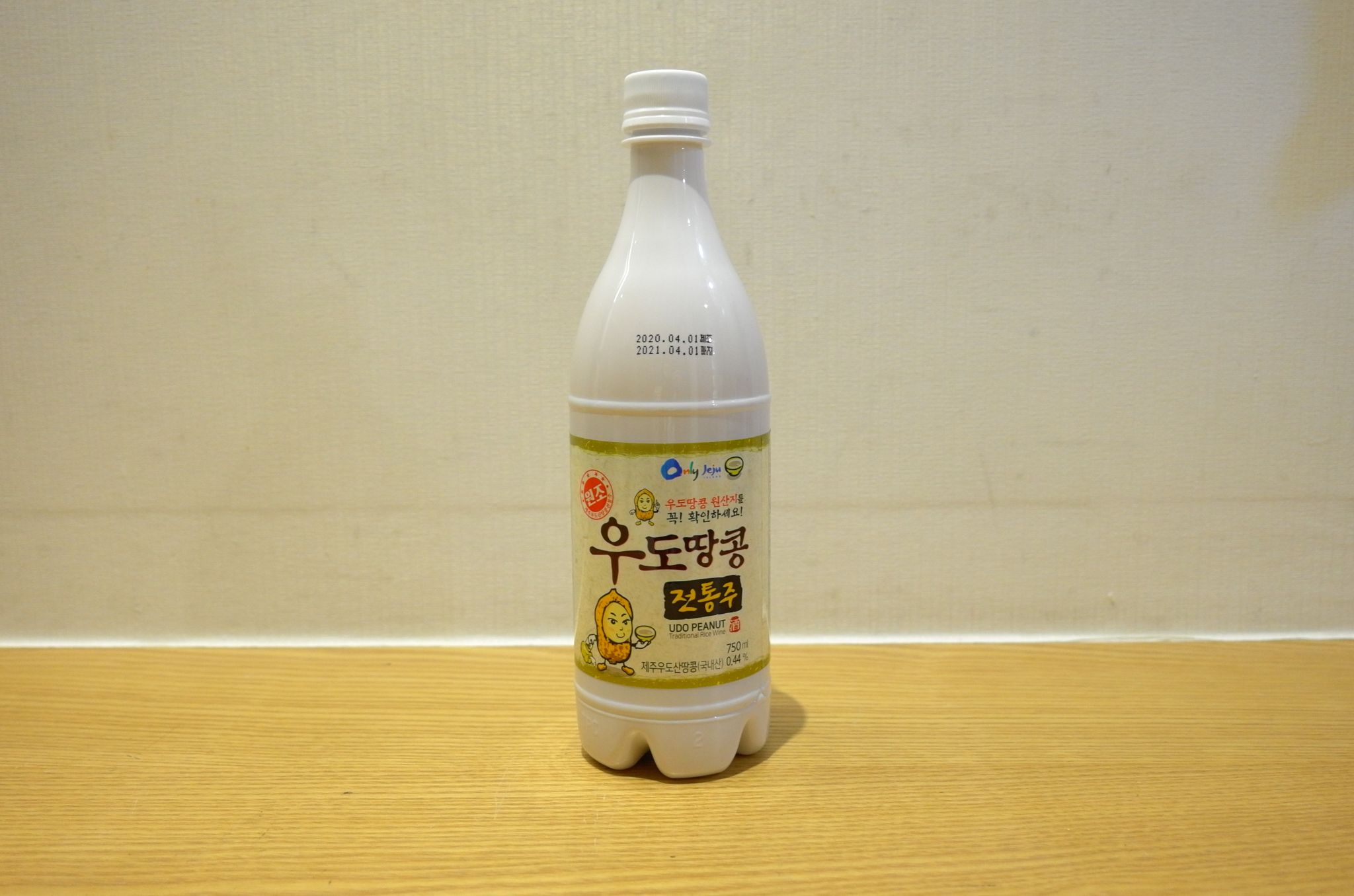
컴퍼스 6
Makgeolli (rice wine) made from Udo peanuts, a specialty of Jeju Udo Island, has a strong peanut aroma and savory flavor.
- Tangerine Makgeolli, Hallabong Makgeolli
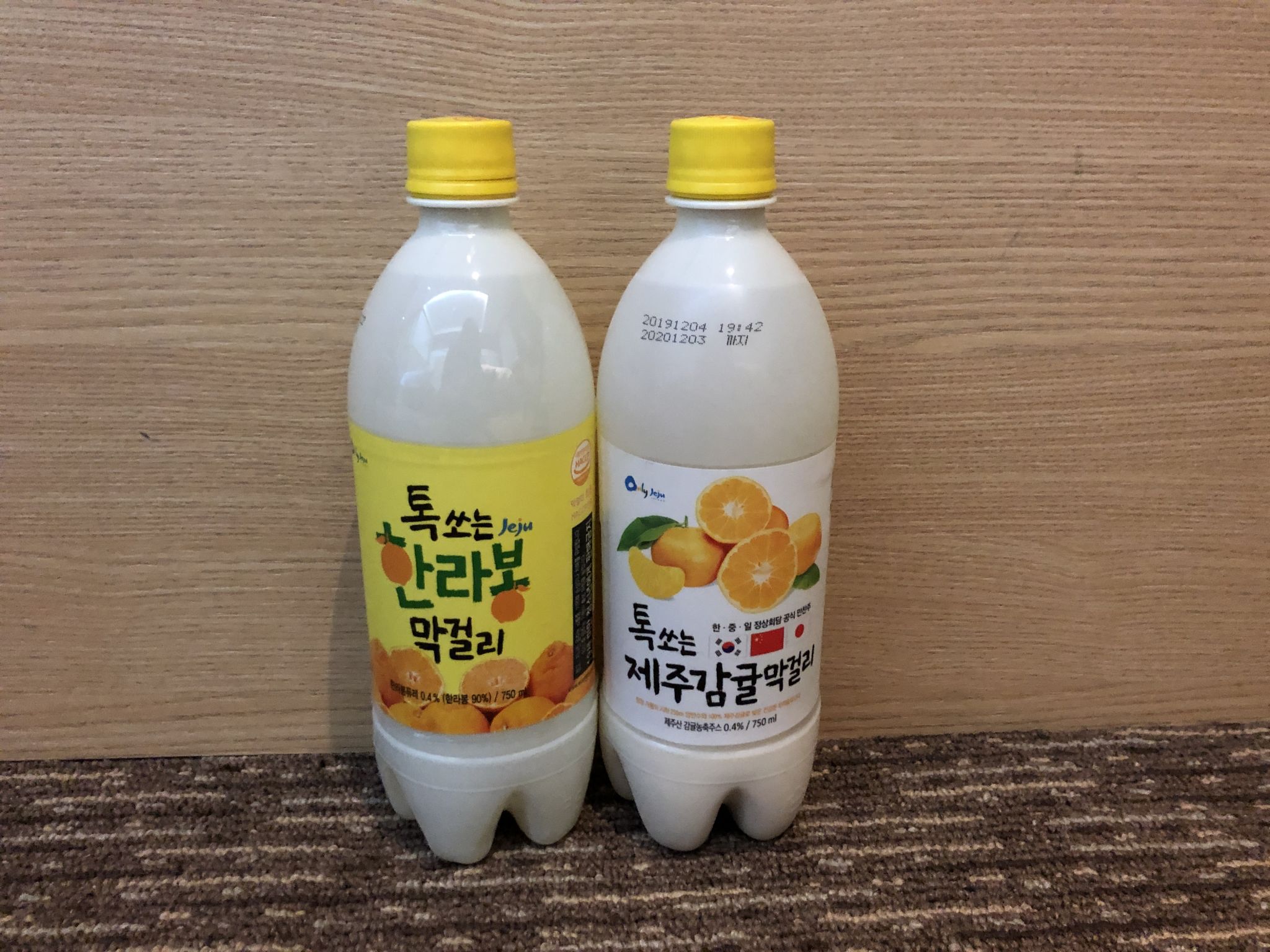
컴퍼스 6
Makgeolli made with tangerine or Hallabong, a fruit associated with Jeju Island, is a drink with a sweet and sour flavor and tangy carbonic acid.
- Tangerine liquor
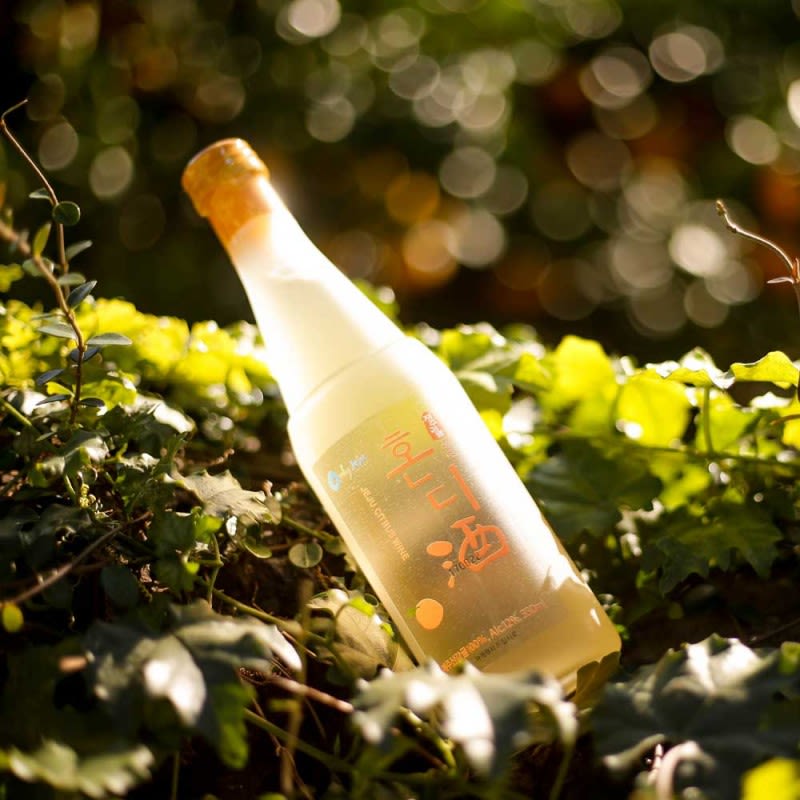
ehondiju.com/bbs/board.php?bo_table=gallery&wr_id=17
Fruit liquor is produced by squeezing and fermenting pure Jeju citrus. Because of its sweet tangerine flavor and low alcohol content, it can be enjoyed by people who aren't used to drinking.
- Omegisul, Gosorisul
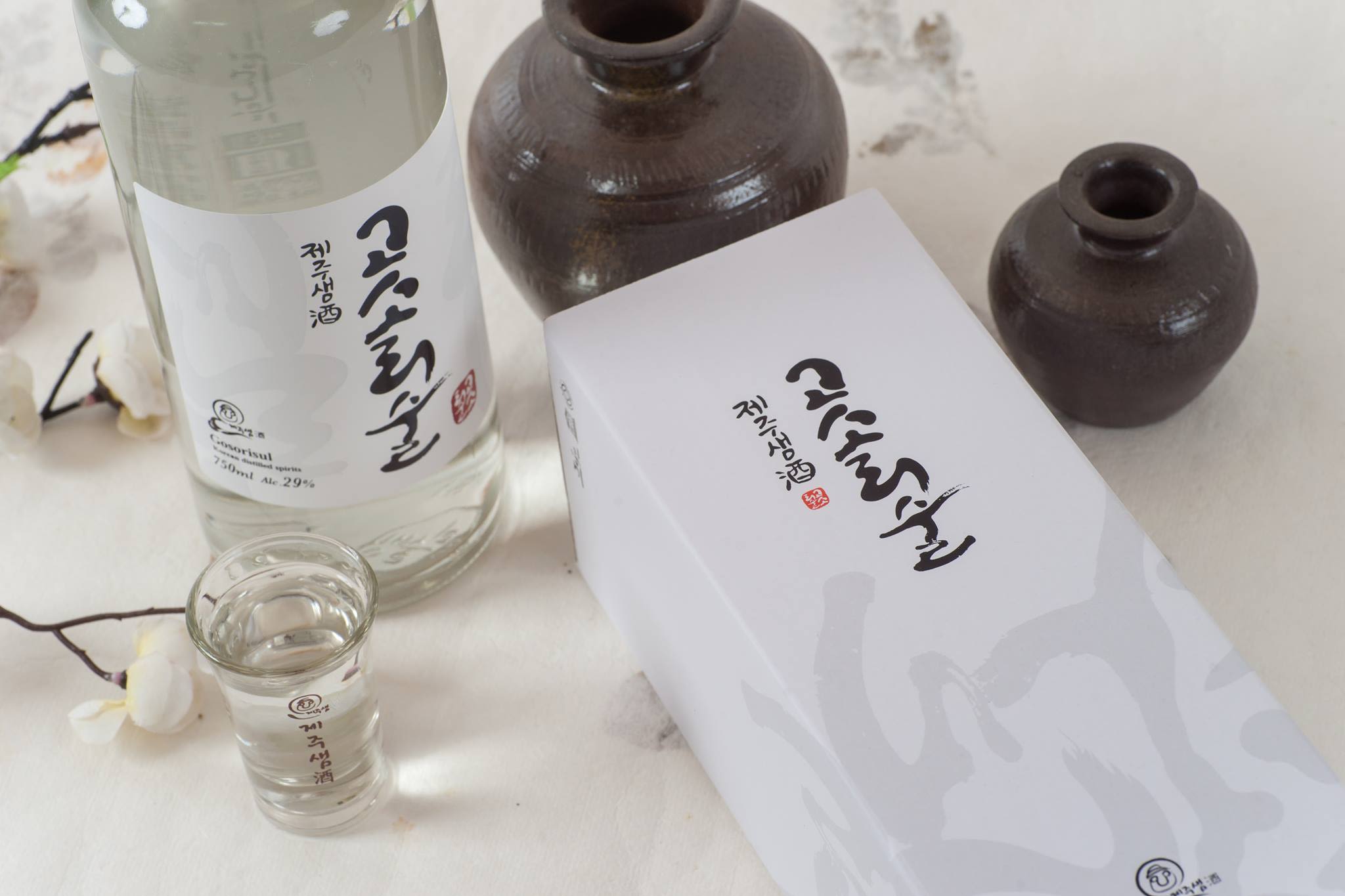
facebook.com/jejusaemju/photos/a.1572209579721454/1572209776388101/?type=1&theater
Omegi-tteok, a local Jeju food, is distilled from yeast and fermented Omegi-tteok, and Gosorisul is a liquor made by distilling Omegisul. Its sweetness and softness make it popular with people of all ages.
- Jeju beer

jejubeer.co.kr/beer/
Jeju's specialty beers are Jeju Wit Ale, Jeju Pellong Ale, Jeju Baengnokdam, and Jeju Seongsan Ilchulbong Tuff Cone.
- Soju
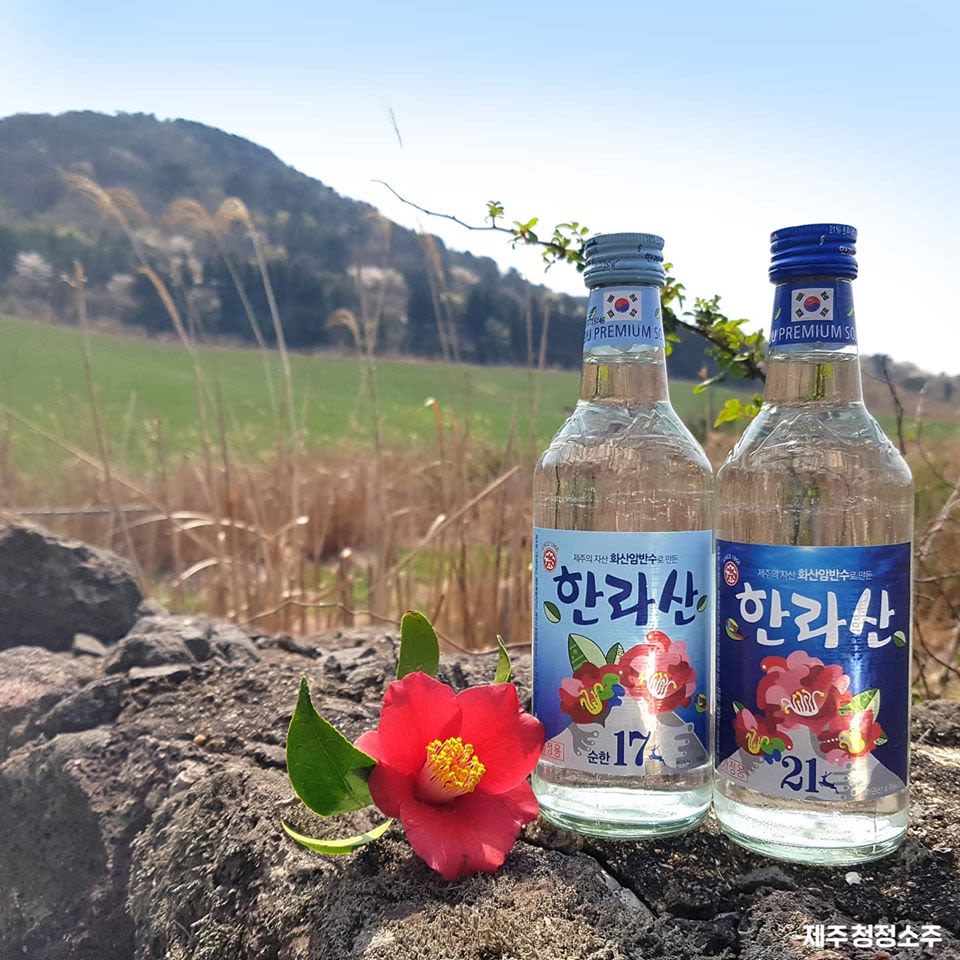
facebook.com/hallasansoju/photos/a.1207790996010565/2642415869214730/?type=3&theater
Jeju has two representative local Soju: Hallasan and Blue Night. Hallasan has the highest percentage of Soju at 21 degrees. Blue Night offers temperatures ranging from 16.9 to 20 degrees.



